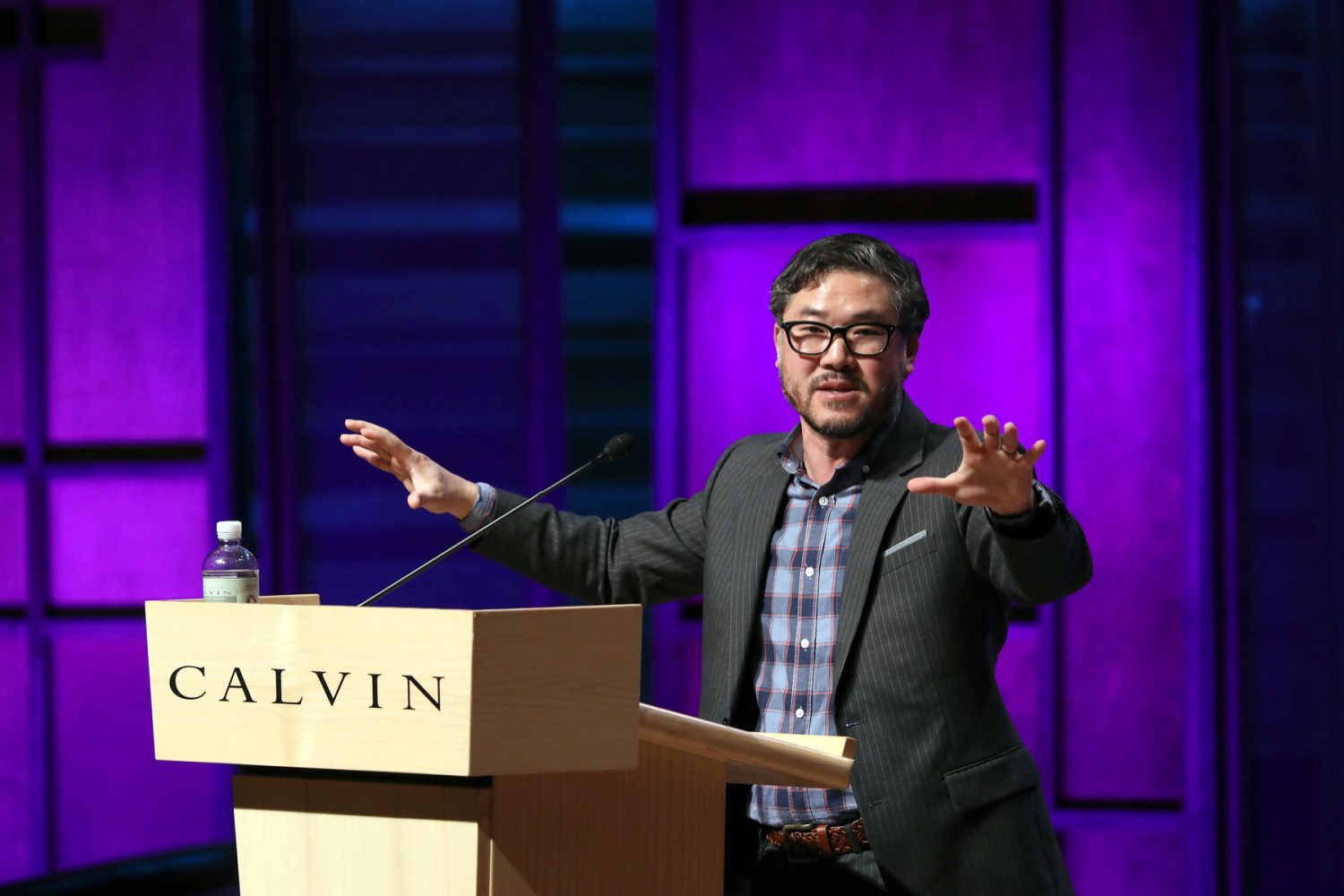“Overrated: are we more in love with the idea of changing the world than actually changing the world?”
“What are you doing for others?” This was the challenging question that Eugene Cho presented to an auditorium full of college students, professors and community members during his talk for the January Series. Cho admits to having struggled with this question throughout his life. As a leader of Quest Church, a multi-generational church based in Seattle, he noticed a disparity between what he was preaching and what he was doing.
What highlighted this issue was a trip he took, years ago, to a small village in Myanmar that was under the rule of a genocidal government. During a conversation with a village leader, he asked what some of the biggest struggles were for his people. The man responded that paying teachers was a major challenge. Cho then inquired how much a teacher’s salary was, in honest curiosity.
The man held up four fingers and in broken English said, “Forty dollar, U.S.”
Cho first assumed that meant per day, but the man laughed Per week? The man shook his head. Per month? The man stared at Cho, a bit frustrated. Per year? The man finally nodded in affirmation.
This was an astonishing fact that stuck with Cho until he returned home to his family. He talked to his wife and children about his experiences in Myanmar. He and his wife prayed about everything they had learned. As they searched, they each came to the conviction to donate one year’s wages. This goal required sacrifice. They made drastic cuts in their spending, sold off the things they didn’t need and even had to rent out their house and couch hop amongst their congregation to reach this goal.
During this period of sacrifice, Cho was inspired to establish a grassroots movement called “One Day’s Wages.” The philosophy behind this organization is that anyone and everyone can participate in philanthropy.
Cho warned against two common vices of the privileged: the “heroic savior complex” and “falling in love with the idea of changing the world [rather] than actually changing the world.”
The “heroic savior complex” is the idea that in wanting to do good we forget the importance of relationships and “without genuine relationships people become projects.” Cho said “passion and justice is sustained when we look at people in the eyes” and recognize them as created in the image of God.
Cho claimed that the current generation’s shortcoming is as people of action. With all the technology, communication, and resources of our time, we still do so little. In the modern age of social media and the world-wide web, we seem content with sharing issues, liking topics and retweeting problems.
Cho’s fear is that “we are more in love with the idea of justice than living justly.” He underlines the need for action not just conversation but the unfortunate reality is that we only care about love and justice until it comes at a cost to us. “We need a spirit of perseverance and tenacity” to bring these ideas we love into reality.
Cho centered his talk around his hope for the future: That this generation and all of them hereafter will take to heart the African proverb, “If you want to go fast, go alone, if you want to go far, go together.”








